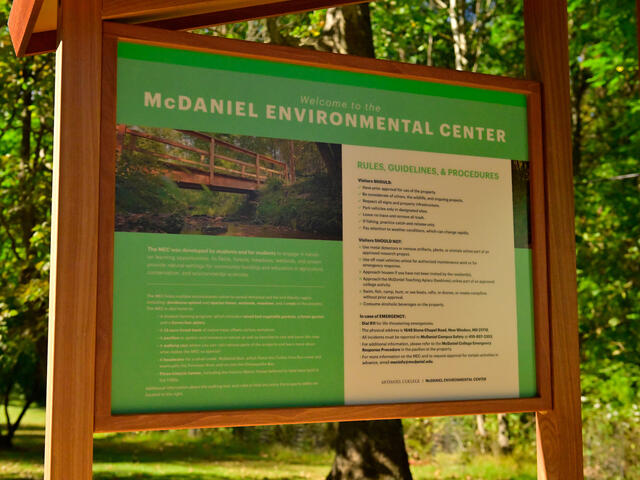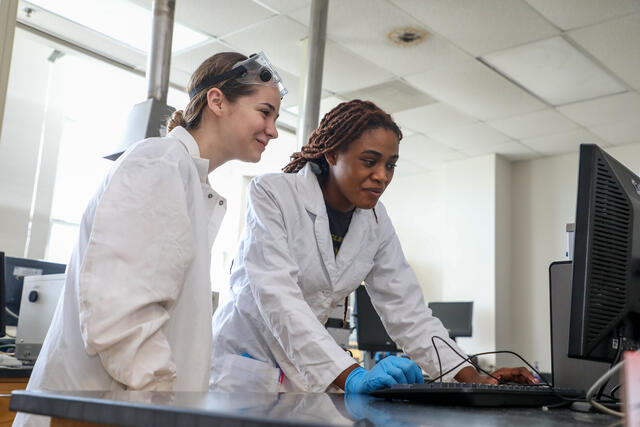Environmental Studies - Environmental Biology
Discover the wonders of Environmental Biology at McDaniel College and gain a deeper understanding of the complex interactions between living organisms and their surroundings. Our curriculum explores the effects of human-driven and natural processes on these relationships, equipping students with the knowledge and skills to start their journey towards a rewarding career in Environmental Biology.
Mortarboard
Degree Types
Major,Specialization
Institution
Complementary Programs
Heart
Distinctive Requirements
Capstone
Document
Research Facilities
The McDaniel Commitment in Action








